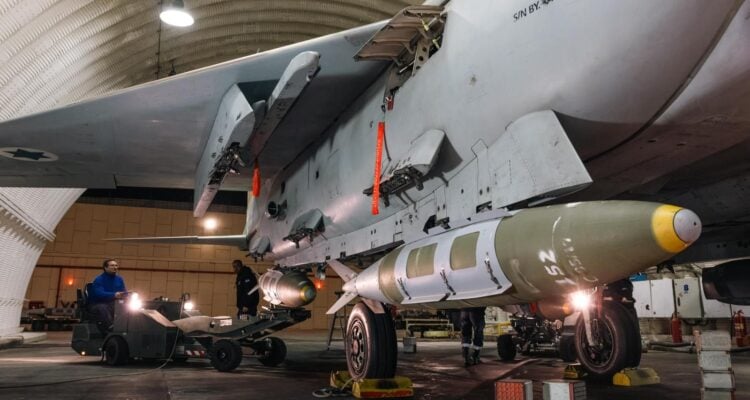Baalbek also functions as a de facto Hezbollah stronghold, often referred to as a ‘mini Hezbollah state’ within Lebanon.
By Pesach Benson, TPS
Israel’s airstrike killing Hezbollah air defense commander Meitham Mustafa Altaar in Baalbek was a message to Hezbollah.
“The attacks carried out by the IDF in the town of Baalbak in eastern Lebanon, a distance of over a hundred kilometers from the northern border, are a serious Israeli signal to Hezbollah,” a high-ranking Israeli military official told TPS-IL. “The next step may be capital.”
While Israeli airstrikes have hit Baalbek in the past, Saturday night’s attack was the first to deliberately target a Hezbollah figure there.
Following the strike, Hezbollah launched more than 60 missiles and drones at northern Israel. Sirens were sounded in the area of Tiberias, a rarity, which the military official said showed the sensitivity of the Altaar’s assassination.
Altaar was noted for his expertise in managing and advancing Hezbollah’s air defense capabilities, often traveling to Iran for training and to receive shipments of weapons smuggled through Syria into Lebanon.
But the military source underscored the location of Baalbek for the strike.
While tourists know Baalbek for its well-preserved ancient Roman ruins, the city is also a logistical hub for and strategic rear for the Iran-backed Hezbollah, located just 30 km from the Lebanese-Syrian border.
It houses critical Hezbollah assets, including stockpiles of ballistic missiles and SAM6 missile batteries.
Reports from the Alma Center for the Study of Israel’s Security Challenges further indicate extensive tunnel networks in the area, some reaching depths of 80 meters, used for storing weapons and facilitating movement between Lebanon and Syria.
Baalbek also functions as a de facto Hezbollah stronghold, often referred to as a “mini Hezbollah state” within Lebanon.
The area, recognized as an independent district in 2003 at Hezbollah’s request, houses numerous municipalities and village councils predominantly loyal to the Shi’ite terror group.
Institutions such as schools and hospitals are reportedly built and operated by Hezbollah, further solidifying its control over the local population.
The Baalbak district, known historically for its cultivation of hashish and role in drug trafficking routes, also plays a crucial role in Hezbollah’s strategic planning and community influence.
Around 60,000 Israelis living in northern communities were forced to evacuate in October when the Hezbollah terror organization began daily rocket and drone attacks.
Leaders of the Iran-backed terror group have said they will continue the attacks to prevent Israelis from returning to their homes. Hezbollah attacks have killed 10 civilians and 16 soldiers.
Wildfires sparked by the barrages have burnt over 25,800 acres of land in northern Israel since the beginning of 2024, forcing firefighters to “fight fire under fire.”
Israeli officials have been calling for Hezbollah to be disarmed and removed from Southern Lebanon in accordance with UN Security Council resolution 1701, which ended the 2006 Second Lebanon War.





